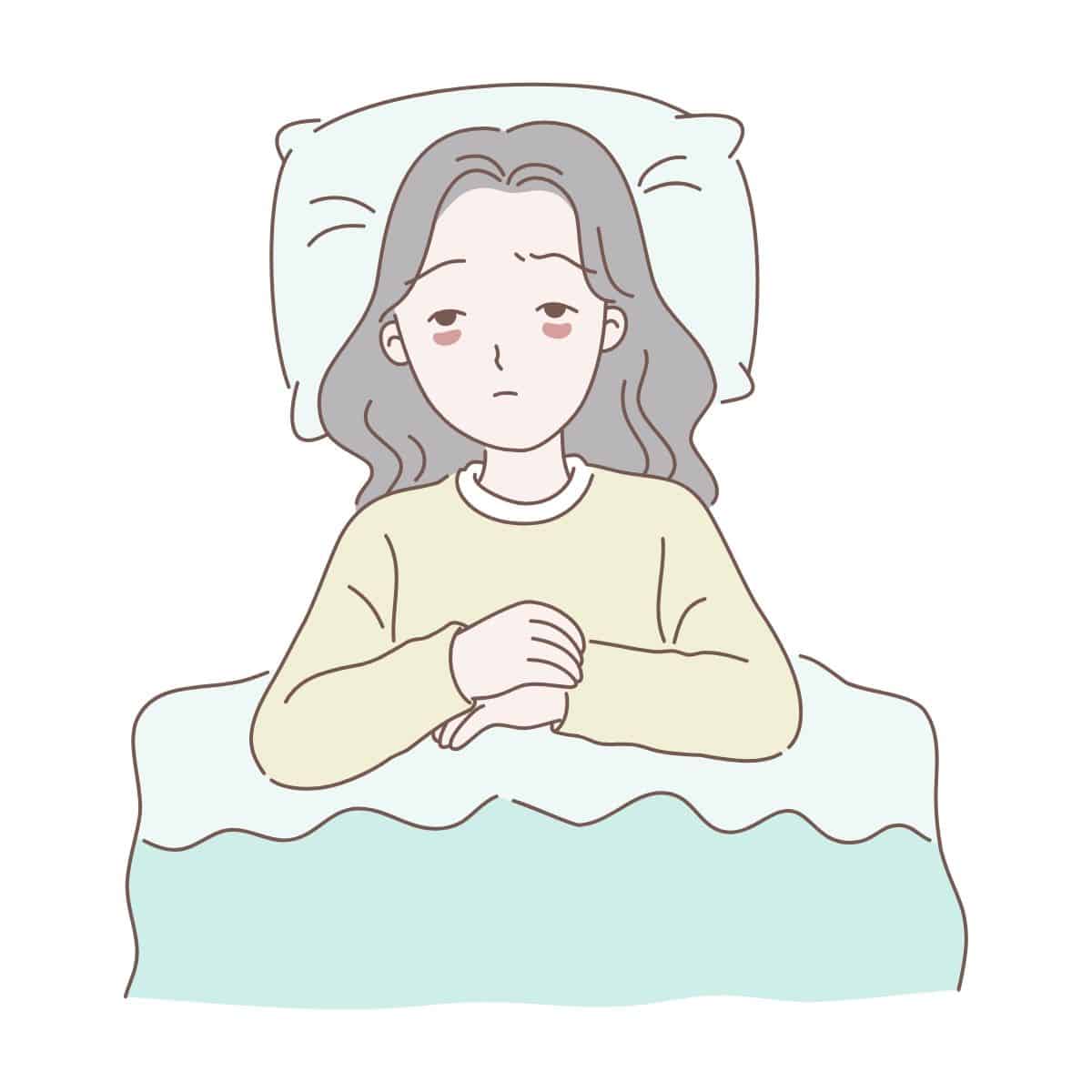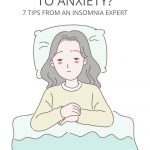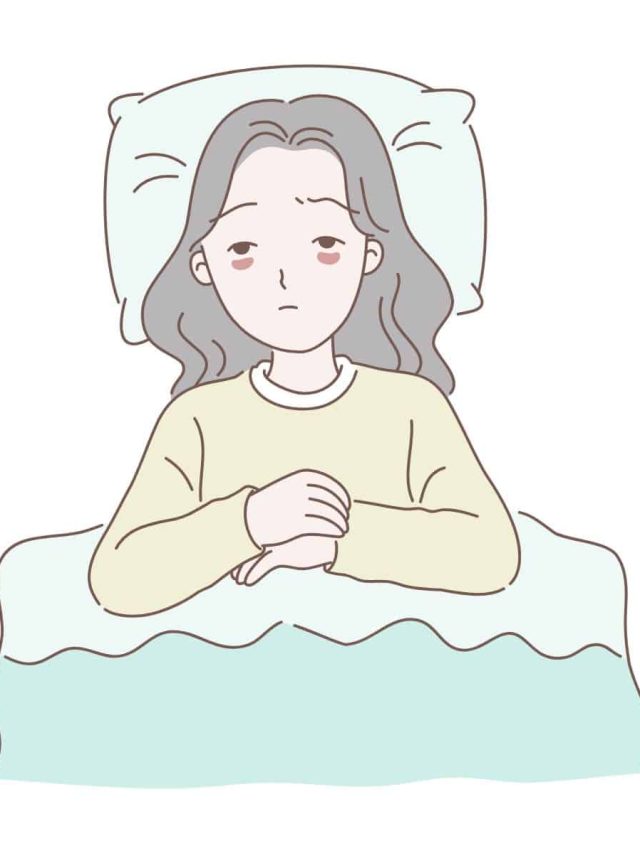During this time of extreme uncertainty, many of us are struggling to sleep. If you’re like me, you fall asleep easily but wake up at about 3am thinking of whatever was on your mind during the day, or perhaps your subconscious decides to think (yet again) about the state of the world. You might also struggle with falling asleep at all.
Trust us, you’re not alone. So many of you have reached out about sleep struggles. We’ve taken your questions and given them directly to Dr. Leah Farrell-Carnahan, a personal friend, trusted insomnia expert, and licensed clinical psychologist and founder and director of Atlanta CBT. Dr. Farrell-Carnahan has helped hundreds of people who struggle with insomnia, so if you can’t sleep due to anxiety, this article is for you!
Please note that Dr. Farrell-Carnahan gives general advice, which is NOT meant to replace any specific advice or recommendations you have been given from your personal healthcare providers. It is always a good idea to consult with your personal physician if you notice that you are having trouble sleeping.

This site contains affiliate links, meaning that we earn a small commission for purchases made through our site. We only recommend products we personally use, love, or have thoroughly vetted.
Anxiety and Insomnia
Insomnia, or any kind of disordered sleeping, can exacerbate your stress levels. And in a time when many of us are working from home, trying to homeschool our kids, and avoid a freaking deadly virus, no one needs any extra stress.
Dr. Farrell-Carnahan explains that falling and/or staying asleep is actually exceptionally common. She explains:
“Difficulty falling and/or staying asleep is very commonly triggered by life stressors including trying to conceive, miscarriage, pregnancy, having a baby, perimenopause, or menopause, school or career transitions, and, of course, trauma.”
Dr. Leah Farrell-Carnahan
I’d say that many of us are living in a kind of trauma right now: everything is uncertain, and nothing is quite normal, including our sleep schedules, and, for many of us, our ability to fall asleep and/or stay asleep.
In fact, Dr. Farrell-Carnahan agrees.
“We are pretty much in a perfect storm for triggering insomnia right now given most of us are experiencing the convergence of multiple triggering stressors in the midst of the COVID-19 pandemic.”
Dr. Leah Farrell-Carnahan
Luckily, if you are experiencing “can’t sleep stress,” Dr. Farrell-Carnahan is here to help with cognitive behavioral skills to help you get some zzzs.
How to Sleep When Stressed and Anxious
Katy asked on Instagram what sleep questions you all had, and Dr. Farrell-Carnahan took the time to answer them all on video! We’ve taken this video and turned it into a list of tips to help you sleep when stressed and anxious.
According to our expert, with insomnia, knowledge and behavior change are power. There are actually things you can learn and do differently to prevent insomnia from becoming chronic and to treat it once it has.
Without further ado, here are seven tips to help you get a better night’s sleep.
1. Never Get in Bed When You are NOT Sleepy
Dr. Farrell-Carnahan is adamant about this. She explains that even if you have imposed a bedtime upon yourself, you shouldn’t get into bed if you aren’t sleepy to begin with. Sometimes, at bedtime, we feel “tired but wired,” and getting in bed at those times will actually be more hurtful than helpful.
Dr. Farrell-Carnahan defines “sleepy” as “that feeling when you are about to nod off. That is when you want to get into bed, not before.”
Her reasoning behind this is that we all need time to wind down and allow the conditions for sleepiness to come.
Some of us may be watching the news or catching up on social media–in so doing, we rob ourselves of the wind down time we need. (Guilty!!)
So put the phone down and wait until you start to nod off before actually peeling back those covers and climbing into bed. This will minimize the “need” to mindlessly check Instagram one more time because you just aren’t that sleepy.
2. Don’t Become Fixated on a Specific Bed Time
This tip closely follows #1. Dr. Farrell-Carnahan notes that people tend to get fixated on bed times, probably because parents aim to get kids into bed at a specific time. (Hello, we NEED that alone time!)
“It turns out that, when you are having difficulty falling asleep, in general, a consistent bedtime is less important than a consistent wake time.”
Dr. Leah Farrell-Carnahan
Dr. Farrell-Carnahan suggests setting an alarm for the same time every day and getting out of bed at that time, or within a few minutes of it. Don’t play the snooze game, either.
That way your circadian rhythm (the invisible body clock that regulates your sleep and wake schedules/preferences, body temperature, appetite, etc) will begin to regulate, and you will notice that you will be more likely to get sleepy around the same time at night.
Of course, this is as long as you are providing yourself a nice, long “wind down” time where you allow your mind to quiet, your body to calm itself, and your whole self time to prepare for sleepiness to come.
3. Address Your Worries During the DAY
Katy asked Dr. Farrell-Carnahan the following question: “I have a really hard time shutting my brain off to fall asleep. How can I get over this to fall asleep better?”
First off, I feel this deep in my soul. Second, Dr. Farrell-Carnahan’s answer isn’t completely surprising to me, although it is definitely something I need to put into practice in my own life.
She explains that you should set aside time during the DAY to write out your worries and fears. While you are at it, you should also generate some solutions, if you can, to your worries. Maybe do a little organization.
“It is advisable to set aside this time during the day or prior to winding down for the evening.”
Dr. Leah Farrell-Carnahan
By giving yourself time and space to actually sit with and think through your worries and fears, you are less likely to spend time thinking about them before you fall asleep, or, if you’re like me, waking up thinking about them in the middle of the night.
4. Get Out of Bed When You Feel Restless
This one might feel contrary to what you’d assume were good sleeping practices, but if you are feeling restless while trying to fall asleep, Dr. Farrell-Carnahan actually recommends getting out of bed.
She describes this feeling as being “tired but wired,” which is different from that nodding off/sleepy feeling you get when you are truly ready to fall asleep.
By staying in bed when you feel sleepy, you are actually training your brain to think that your bed is a place for restlessness, not sleep. The bed becomes a conditioned cue for restlessness, which perpetuates the cycle.
This advice goes for those of us who wake up in the middle of the night and can’t fall back asleep. Dr. Farrell-Carnahan recommends getting out of bed if you wake up in the middle of the night and are restless.
Go to a dimly lit room and do something (not on a screen) that holds your attention but isn’t particularly activating. You could do a crossword puzzle, read a book, organize a junk drawer, write thank you notes, do a guided meditation, etc. Once you get sleepy, you can return to bed and try again. Repeat as necessary.
“The way to prevent and cure this trap is to just not spend any time in your bed while restless. I would take it a step further and not do anything in your bed or bedroom besides sleep and sex. So, no folding laundry, no TV, no work, no studying. That is the gold standard. Do what you can with it.”
Dr. Leah Farrell-Carnahan
There you have it! Your bed is for sleep and sex and nothing else. Get out of it when you feel restless!
5. Have a Set Routine Before You Get Into Bed
Many of us have heard this one before, but it can’t be stressed enough: you want to create the appropriate conditions for sleep before you get into bed. Dr. Farrell-Carnahan calls this the “wind down period.”
Your “wind down period” can include any or all of the following (and you might have other things specific to you, too!):
- Set your thermostat for your optimal sleep temperature (some like it cold, some like it perfectly temperate)
- Avoid emails, social media, and your phone or laptop in general
- Put on comfortable pajamas
- Wash your face or take a bath/shower to relax
- Do a guided meditation
- Read an enjoyable book (not in your bed)
- Do some light stretches or yoga
- Have a cup of herbal sleep tea (no caffeine)
Basically, figuring out how to calm your mind and body will help you create your own wind down period.
6. Avoid Alcohol Before Sleep
Alcohol has become a popular coping mechanism during this pandemic; mostly because there isn’t much else to do, and getting pleasantly buzzed is a nice alternative to the fact that the world is mostly a raging dumpster fire.
However, and we know this is hard to hear, alcohol can interfere with the quality of your sleep. Ouch.
The bad news is that alcohol blocks REM sleep (the good, deep sleep cycle you fall into after 90 minutes), meaning that you might feel drowsy and fall asleep quickly when you drink, but you’re much less likely to fall into deep REM cycle sleep.
So have that glass of wine when the “school day” is over for your kids, but don’t overindulge. Your sleep cycle will thank you.
Watch this video to hear about other activities, environments, or health conditions that could prevent you from getting good quality, restorative sleep.
7. Try Not to Stress About Sleep
Did you know that actively worrying about sleep actually fuels insomnia?
According to Dr. Farrell-Carnahan, people who worry about getting good sleep will often have what she calls “catastrophic thoughts.”
We imagine the terrible things that will happen because of one bad night of sleep, placing pressure on ourselves to rest and thus making it harder to do so.
She recommends two specific tips for dealing with this problem:
- Remind yourself about a specific time when you didn’t sleep well and things were okay
- Remember that bad sleep tonight often equals good sleep tomorrow
A Note on “Good” Sleep
This topic actually stems from a question posed by a member of our Undefining Motherhood community. This mama asked Dr. Farrell-Carnahan if napping frequently (due to sleeping when her baby sleeps) is the equivalent of getting good sleep.
This mama has chosen to not to sleep train her baby, and is therefore awake during much of the night. As such, she naps during the day when her baby sleeps.
Unfortunately, Dr. Farrell-Carnahan’s answer is probably the opposite of what those of us with small children want to hear.
“You are likely not cycling through complete sleep cycles or getting enough sleep when you nap. Scientists think that there are unique and important benefits for each type of sleep and for cycling through. Health problems like hypertension, obesity, cancer, depression, and anxiety are associated with short or poor sleep.”
Dr. Leah Farrell-Carnahan
Additionally, you may find your productivity, concentration, mood, and memory can be negatively affected. (Those of us with young kids are probably nodding vehemently in agreement at this point).
Dr. Farrell-Carnahan recommends talking to your doctors and your child’s pediatrician to understand the specific risks of not sleeping for long enough.
She also recommends looking up Dr. Jodi Mindell’s helpful book, Sleeping Through the Night: How Infants, Toddlers, and Their Parents Can Get a Good Night’s Sleep.
Still Struggling to Sleep? Talk to Your Doctor!
As we wrap up Dr. Farrell-Carnahan’s excellent advice for getting sleep during this anxious time, we’d be remiss if we didn’t remind you to consider treatment if your insomnia is chronic.
Dr. Farrell-Carnahan recommends asking your doctor if cognitive behavioral therapy for insomnia (CBT-I) might be work for you. She also suggests the Society for Behavioral Sleep Medicine’s website for learning more about insomnia, CBT for insomnia, and other kinds of disordered sleep.
What are your tips for when you can’t sleep due to anxiety? Please share them with us in the comments!











My husband struggles to sleep and I think some of it may be getting in bed before we are tired. Many times after dinner we will just clean up and go upstairs and lay in bed to watch TV even if we normally wouldn’t be going to sleep for a few hours.